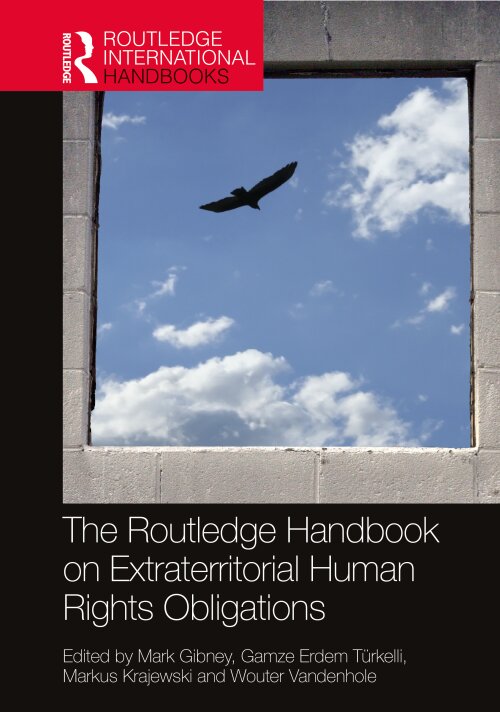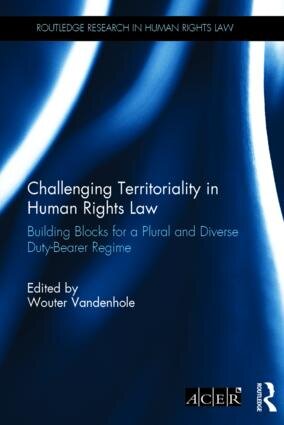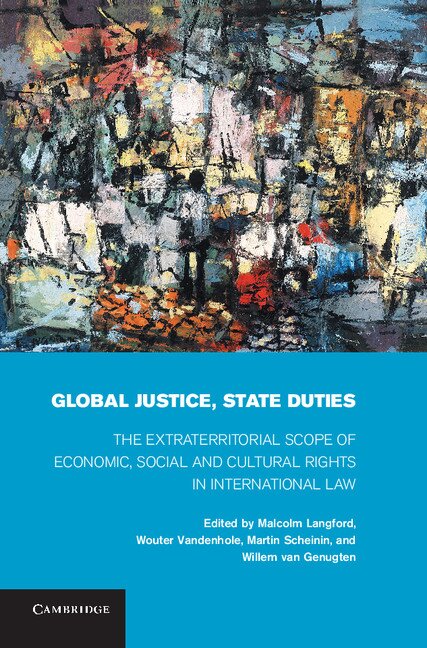Human Rights: A Common Responsibility
The research line Human rights: A Common Responsibility explores to what extent international human rights law imposes, or is moving towards imposing obligations across and beyond State borders.
The research line focuses on two alternative ways of constructing a common responsibility for human rights:
Transnational human rights obligations
Human rights have traditionally been framed in a vertical perspective with the duties of States confined to their own citizens or residents. Obligations beyond this ‘territorial space’ have been viewed as either being nonexistent or minimalistic at best. This territorial paradigm has achieved particular prominence in political philosophy, but also in the interpretation of international human rights conventions, although there is language in many of these treaties that would provide a broader scope of application.
In this research line, we seek to reconceptualise international human rights law , in order to ensure that it can act effectively as a corrective to abuses of power and failures by a variety of actors that exercise power. From 2010 to 2015, the emphasis was on developing a general conceptual framework. This research was undertaken in the context of the European Research Networking Programme GLOTHRO , and resulted in several edited volumes with leading publishing houses (Cambridge, Routledge, SAGE, Brill). Since 2016, the general conceptual framework is being road-tested in case studies on armed groups, international non-state economic actors, business and multi-stakeholder platforms.
In 2020, a Scientific Research Network (SRN) on Extraterritorial Human Rights Obligations in Practice was initiated. The SRN will run for five years and is a joint effort of the universities of Antwerp, Ghent, Brussels, Erlangen-Nürnberg and North Carolina. It is funded by the Research Foundation – Flanders (FWO). In 2022, the Routledge Handbook on Extraterritorial Human Rights Obligations was published.
As of 2022, the focus is on a thicker understanding of human rights accountability of businesses, as part of the i-BOF-project “Future-proofing human rights. Towards a thicker understanding of accountability”.
The right to development
The Declaration on the Right to Development was adopted in 1986, but the debate about the content and the distribution of the responsibility for the operationalisation of the right to development continues. The research group engages with efforts to implement and codify the right to development.
Main researchers
Networks
Key publications

Mark Gibney, Gamze Erdem Türkelli, Markus Krajewski, Wouter Vandenhole (eds)
The Routledge Handbook on Extraterritorial Human Rights Obligations
ISBN 978-0-36-754648-9
Routledge – 2022 – 510 pages

Gamze Erdem Türkelli
Children's Rights and Business: Governing Obligations and Responsibility
ISBN 978-1-10-868184-1
Cambridge University Press – 2020 – 376 pages

Wouter Vandenhole (ed.)
ISBN 978-1-13-879945-5
Routledge – 2015 – 256 pages
Series: Routledge Research in Human Rights Law

Author(s):
Wolfgang Benedek (ed.), Koen De Feyter (ed.), Matthias C. Kettemann (ed.), Christina Voigt (ed.)
The Common Interest in International Law
ISBN 978-1-78068-271-6
Intersentia UK, 2014 - 234 pp.

Langford M., Vandenhole Wouter, Scheinin M., van Genugten W. [edit.]
ISBN 978-1-107-01277-6
Cambridge: Cambridge University Press, 2013.- 477 p.